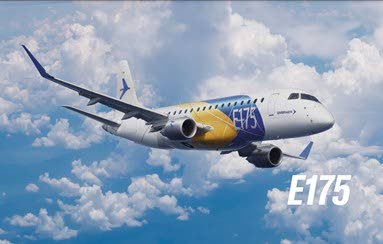CAL's fleet expansion programme

In delivering TT’s 2023/2024 national budget, Finance Minister Colm Imbert announced that the Caribbean region has been exhibiting strong air transport demand.
According to Imbert, to meet this growing demand, Caribbean Airlines Ltd (CAL) intends to expand its fleet through the lease of additional ATR-72, B 737- MAX 8 and Embraer E-175 regional jets to service the intra-regional demand and establish bases and hubs across the region to promote efficiency and cost-reducing measures.
The first major reaction to CAL’s proposed expansion came last Friday from Lionel Hurst, chief of staff in the Antigua and Barbuda office of the Prime Minister.
After the weekly Cabinet meeting, Hurst – speaking at a news conference – said the Government had taken note of the scaling-up of CAL, including the purchase of several ATR aircraft with the expectation of placing them on routes serviced by LIAT 1974 Ltd.
Hurst said while plans are for LIAT 2020 to become fully operational by Christmas this year, St John is not going to lie down and allow the expansion of CAL in the region. Hurst added that his Government intends to fight plans by CAL to expand its operations into the Eastern Caribbean.
Antigua and Barbuda will certainly lose any fight with CAL, which is exercising its rights under the revised Caricom Multilateral Air Services Agreement (MASA) to exploit marketing opportunities in the Caricom region. CAL's proposed expansion does not in any way violate Article 18: Pricing, and Article 19: Fair Competition, of the MASA.
Any attempts by Antigua and Barbuda to restrict CAL’s operations into its territory will be a violation of the MASA, with legal consequences.
The provision of efficient regional air transport within the Caricom region has been thwarted by insularity and geopolitics.
In June 2020, Antigua and Barbuda Prime Minister Gaston Browne, during an interview on Antigua’s Observer Radio, said he rejected any idea of CAL's replacing LIAT and would soon start a scaled-down LIAT, on its own, rather than give CAL a monopoly.

File Photo - Angelo Marcelle
Browne added, "In terms of those who are suggesting...giving CAL a monopoly on the provision of air services within Caricom, I am totally opposed to that, one million per cent opposed to that.”
As suggested by this column on numerous occasions, one way to solve the regional air transportation problems is for Antigua and Barbuda to embrace CAL and promote functional co-operation between CAL and any future reincarnation of LIAT.
On the other hand, Imbert briefly described CAL’s expansion plans in his 2024 budget statement under the heading Tourism and Cultural Industries, perhaps hinting at possible budgetary implications.
The Embraer E-175 aircraft, with a range of 2,200 nautical miles and dual-class seating of 76 seats, is suitable for operating a non-stop service between Port of Spain and Kingston.
Additionally, the Embraer E-175 can be used for services between Port of Spain and destinations in Florida such as Miami and Fort Lauderdale during off-peak periods when the passenger load factors are well below break-even for a Boeing 737 Max aircraft.
However, the operation of the Embraer E-175 as a new aircraft type will incur significant startup costs owing to the training of flight crews, maintenance personnel and ground operations staff. Adequate spares and specialised tooling will have to be procured to meet the regulatory requirements for adding it to CAL’s Air Operating Certificate (AOC).
The AOC process is likely to last approximately six months, based on the ICAO five-phase certification process.

CAL’s proposed expansion was more than likely based on a feasibility study by its analytics group that identified the demand for additional airlift capacity and considered the most suitable aircraft based on operating economics.
Of major concern to stakeholders, particularly the TT taxpayers, is the sustainability of the market demand to justify the fleet expansion that is intended to promote efficiency and cost-reducing measures. There must be optimum fleet utilisation, as aircraft on the ground do not earn revenue and monthly lease charges must be paid.
Therefore, the Investments Division of the Finance Ministry should do a very comprehensive and rigorous due diligence on CAL’s proposed fleet expansion programme and attest to its viability.
A major function of the Investments Division is appraising and evaluating investment plans of state enterprises to ensure the profitability of investment projects.
At a virtual news conference in 2021, Imbert said the Government could not bail out CAL to the tune of $700 million unless the airline gets itself ready and made itself as efficient as possible for the resumption of flights.
Imbert added that whatever system was put in place to allow the post-covid19 resumption of flights, CAL would be required to make a presentation to the wider public and let everybody know what the restructured airline would look like.
Taking a cue from this June 2021 edict, TT taxpayers have every right to know the extent to which CAL has achieved the objectives of its post-pandemic recovery plan and the answers to questions about CAL’s financial performance.
Are operating revenues equal to or exceeding operating expenses? Is there an operating surplus to fund CAL’s fleet expansion program?
These questions are relevant because a fleet expansion requires considerable funding to meet the cost of aircraft-lease security deposits and other associated expenses. Imbert must categorically state whether TT taxpayers are going to fund the initial cost of CAL’s fleet expansion.
Finally, as a true act of patriotism, it is strongly recommended that Imbert, as corporation sole, ensures all additional aircraft to be leased by CAL have a suitably designed steelpan logo, instead of a bird that very closely resembles the national bird of Jamaica.

Comments
"CAL’s fleet expansion programme"